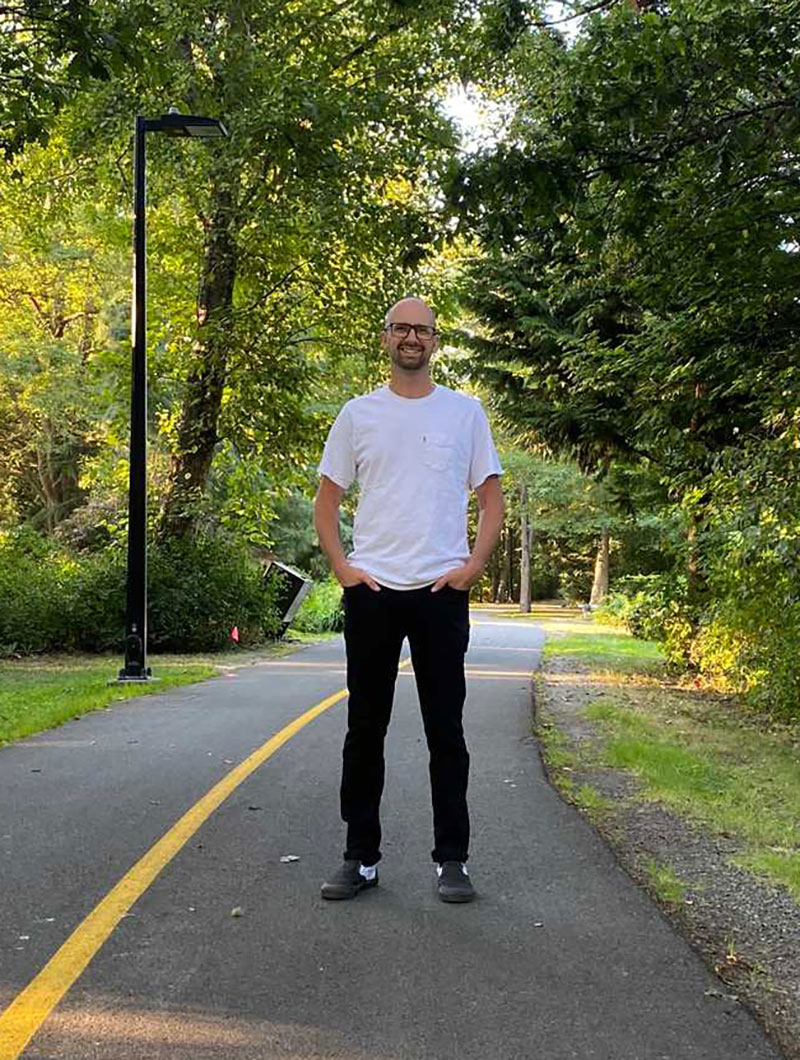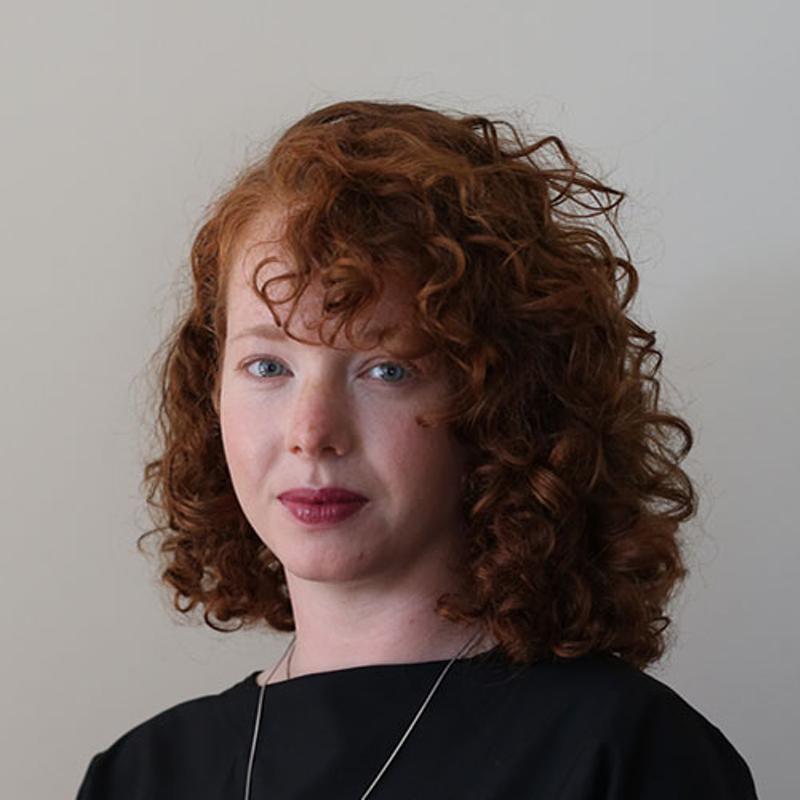What can stop secretly backed campaigns of disinformation from attacking public politicians and distorting local democracy?
Very little, based on events unfolding in Squamish, B.C.
In May 2021, advertisements started popping up on Facebook accounts owned by residents of the 23,000 person community nestled on the shores of Howe Sound, an hour's drive north of Vancouver.
At first, the ads seemed to promote civic engagement. They came from a Facebook page called "Squamish Voices" and promised to "raise awareness" about the money given to developers, while locals suffered under the burden of increased property taxes.
But over the next year and a half, the ads grew in frequency and scope. They assailed the mayor and select councillors, claiming they'd failed to invest in housing and infrastructure, and to consult with the community. The ads were misleading, and often rife with false claims.
The price tag started to rack up. In total, Squamish Voices has spent over $70,000 on Facebook ads alone.
The online ads were accompanied by fliers distributed to mailboxes across the region. On Sept. 22, 5,000 to 7,000 fliers were posted — costing at least $800 more than a third party in Squamish is permitted to spend on advertising during the election term.
But the anonymity of who was behind the effort is what concerns residents and public officials the most.
In March, a National Observer investigation connected the page to Mobilize Media, a right-wing marketing agency that has represented Erin O’Toole, Doug Ford and is currently running Pierre Poilievre’s campaign.
However, the individual or entity paying Mobilize Media is unknown, leaving the motive driving the campaign a mystery.
“The public realm has been poisoned by this moneyed, anonymous entity,” Mayor Karen Elliott told The Tyee. “They are trying to confuse our population, and putting misinformation into the social discourse.”
And protected by this anonymity, the culprit has waged a campaign that local candidates — who are limited in resources and money — cannot combat.
The online harassment may have managed to stifle those who would have run for office. Only 10 people are currently running for six council seats, significantly less than in the last four elections.
This smear campaign could therefore transform the future of Squamish. As an extensive report in the Breach news site reported last week, “A more pliant local council could potentially greenlight several proposed projects waiting on municipal approvals, including the years-deferred Woodfibre LNG facility now supported by Enbridge, the thrice-voted-down Cheema Lands housing development and the Aquilini family’s long-delayed Garibaldi resort."*
"The councillors targeted by the various pop-up groups," noted the Breach, "have each voted against, or expressed opposition to, some of these developments."
A quiet start
Squamish Voices started in March 2021, labelling itself a “community organization.” It started by posting uplifting news stories about local wildlife sightings and community events. The first attack ad showed up in April 2021, targeting Mayor Elliott for giving developers property tax breaks for 15 years, while increasing taxes for residents by 6.6 per cent. The ad cost a minimum of $300 and was seen 30,000 times by people across B.C.
For the next year and a half, the majority of Squamish Voices’ ads railed against council’s supposed failure to invest in housing, transit and parking — hot-button topics in a community that has grown 22 per cent since 2016.
“What’s insidious about Squamish Voices is that they begin not through attack ads but through innocuous posts to build engagement,” said Elliott. "And then once they have critical mass, they move onto their true objective.”
The ads targeted Mayor Elliott and three other councillors: Jenna Stoner, Doug Race and Chris Pettingill.

The ads paste unflattering photographs of the councillors over text or videos that hurl insults. Posts claim councillors — dubbed “Team Karen” — are “reckless,” “self-interested” “flip flop politicians” who “do not want your family to own a car.”
Many of the ads claim that councillors are in the pockets of developers without offering proof.
A number of ads published last October, which cost upwards of $2,000, accused council of spending $220,000 of municipal taxpayer’s money for three gazebos. In fact the money came from the province.
Postcards making the same false claims were distributed to households across the region.
The district labelled those gazebo claims "misinformation" and released a statement correcting details within the ads.
The Squamish Voices ads stopped on July 15, three days before the pre-election period began. During the pre-election period, all third party advertising sponsors have a spending limit ($1,023 in Squamish) and must register with Elections BC with a valid name and contact.
On Sept. 7, a new page, Squamish Now, was created. Six days later, the attacks began. The advertisements were focused on Armand Hurford, one of three candidates running for mayor. Squamish Now spent $2,119 on nine ads, many of which attacked him for “despising residents that exercise their democratic rights to oppose his reckless spending.”
“Being attacked,” Hurford told The Tyee, “doesn’t feel very nice. It doesn’t feel safe."
Such tactics can have a chilling effect not just on the person targeted, he explained, but on other public figures as well. "I can see it affecting your decision-making process around having a safe place to express your ideas.”
The content and design of the ads were similar to those posted on Squamish Voices. Each ad reached between 10,000 to 50,000 people and was viewed 29,000 times, according to Facebook Ad library.
Squamish Now also distributed 5,000 to 7,000 fliers throughout the region. According to Canada Post these fliers would have cost 37 cents each to print and distribute. Multiplied by 5,000 this sum is $1,850, more than the $1,023.96 a third party in Squamish is permitted by Elections BC to spend on advertising during the election term. And that’s before design costs.

Since the Squamish Now campaign was launched during the pre-election campaign period, the individual behind the page had to register with Elections BC, and that name was Dikran Bedirian.
Bedirian has a phone number with a B.C. area code and, according to Facebook, a Squamish address. But when called, the phone number goes straight to a voicemail that has not been set up. There are also accounts for a Dikran Bedirian on Facebook and YouTube, but there is no content published on any of these pages. A Vancouver moving/transfer service is listed under the name Dikran Chueri Bedirian at the Vancouver Business Licence Office but the license expired in December 2018. A Chueri Dikran Bedirian can also be found under a B.C. Supreme Court Case from January 2022. They are listed as “doing business as Dexter Associates Realty and Dexter Properties Inc.”
But, according to Hurford, no one in Squamish recognizes the name. “I’ve never spoken to anyone that has met this person,” he said.
Hurford believes that both accounts — Squamish Voices and Squamish Now — are ultimately funded by wealthy interests hoping to sway municipal politics.
He doesn't know why he would be the target of these attacks, but suspects that it might have something to do with his refusal to meet with developers during his election bid and his refusal to accept campaign donations from anyone affiliated with a developer or a special interest group.
Either way, Hurford believes that this attack goes above and beyond normal politics.
“This is not small town politics,” said Hurford. “This is a well-funded, outside sources trying to manipulate politics in our small town.”
A false promise of transparency
The investigation by the National Observer identified that Squamish Voices was at some point operated by Mobilize Media. Mobilize Media was founded by Jeff Ballingall, the former digital director of Erin O’Toole’s Conservative leadership bid and founder of Ontario Proud, a Facebook campaign that helped Doug Ford's right-leaning party win election in 2018.
The National Observer was able to track Squamish Voice’s ties to Mobilize Media because of Facebook’s 2018 transparency guidelines. These guidelines mandate that advertisers publishing posts of a political nature must be registered. The ads are then stored in a publicly accessible ad library for seven years.
However, these transparency guidelines fail to insure the public can easily know who paid for the campaign.
Doug Ford’s Ontario Proud Facebook campaign reportedly was largely funded by developers.
The National Observer connected Mobilize Media to BC Proud, a page run by Pacific Prosperity Network, or PPN. In August, Postmedia reported that Vancouver billionaire Chip Wilson had donated $380,000 to PPN in order to help right-leaning, pro-business candidates win the municipal election.
In a statement to the news site the Breach, Ballingall said that Mobilize Media Group had not worked with Squamish Voices since June of this year. He did not respond to Tyee requests for an interview.
This is all legal, as PPN’s website explains: “There are no limits to the amount that you can contribute, nor does Pacific Prosperity Network have any requirement to disclose the names of individuals or organizations that make contributions.”
“Squamish has seen an unprecedented amount of money on attacks and misinformation — clearly aimed at disrupting the democratic process to unknown ends,” said Hurford. But just who and why, remains unclear. “We just don’t know what that is.”
Unprepared 'for that level of disinformation'
Meanwhile, Dikran Bedirian, the name listed with Elections BC as responsible for Squamish Now’s Facebook page and the flier campaign, is under review for compliance with spending limits set by the Local Elections Campaign Financing Act, or LECFA, and will not be sponsoring further directed advertising for this election, according to Elections BC director of communications Andrew Watson.
The penalty for violating LECFA is twice the amount by which the violator exceeded the limit, to a maximum of $5,000, and, in very rare circumstances, a year imprisonment.
However, the election will be long finished by the time Elections BC reaches any conclusions. Any investigation will not begin until Bedirian submits a disclosure report on Jan. 13, 2022.
That’s not good enough, said Hurford, who observed that for anyone willing to spend $70,000 on social media advertising, $5,000 would “just be considered part of doing business.”

Hurford is frustrated by the slow pace of the process. “We’re 20 days away from the election,” he said last month, when he submitted the report. “So any action that’s offside needs to be addressed immediately because it’s having damage right now.”
He blames a provincial election apparatus that has failed to scale up its enforcement arm to meet the kind of crises that plague elections in the technology age.
Why, Hurford wonders, does Elections BC scale up its election staff during a local election, but adds few tasked with enforcement? “There needs to be a capacity to investigate these issues swiftly. Not a slap on the wrist six months after the fact.
“Even if it is jail time, it’ll still be six months after. It still affected the election. And it leaves our process open to doubt.”
Elections BC confirmed this civic election season it has added 30 temporary staff, but the majority work as customer service representatives, answering questions about campaign financing rules from local candidates. Four work on investigations. They support two permanent staff, a director of investigations and an investigations co-ordinator. There are 162 municipal elections across the province.
Onus placed on candidates
Given that Facebook and Elections BC have proven unable to respond to the attack quickly, the task of trying to halt the disinformation while correcting the record falls on local governments and individuals being targeted.
Squamish is not a big city, points out Elliott, which adds to its vulnerability. “I don’t think local governments are prepared to combat that level of misinformation,” said Elliott. “So, [Squamish Voices] has spent at least $65,000 on Facebook ads alone. That’s something small communities cannot counteract. I think the effect it has is reducing or confusing people about where the trusted voice is.”
Hurford said he lacks the time and resources to respond in kind to the fliers attacking him. His campaign's total funds amount to $4,050. A flier campaign of the scale waged against him would run about $1,800.
Fighting back, he said, is also "a time suck. I should be in meetings with constituents. I should be running my campaign… It takes bandwidth to even put up a protest and push back.”
In the meantime, all the anonymous attacks are straining his personal life, he said. Hurford’s mother has asked him about claims made against him, having heard them repeated by friends in her quilting group.
Hurford and his wife worry about what's coming next from his shadowy enemy. They have started to feel less safe in their own community, he said.
Elliott experiences similar dread. She said she's been shouted at from a passing truck as she walked her dog with her 12-year-old daughter. Someone cornered her at a high school graduation and started screaming in her face.
“I think this kind of toxic online environment created by anonymous sites gives permission to some people in the minority to cross a line,” she said.
Elliott thinks one casualty of the secret attack campaign is a decrease in the number of people running for office.
This year in Squamish, 10 people are running for six council seats, much fewer than in the previous four elections. In 2008, when the community was around two thirds its present size, 18 people ran for office.
“My own experience in trying to recruit women to run for office has been met by several people saying ‘Look at what happened to you? Why would I want that?’ said Elliott.
Squamish Coun. Jenna Stoner told The Tyee she knew of four women who wanted to run for office but dropped out because they feared online harassment.
Hurford worries about the state of democracy in the province if Elections BC can't find ways to hold anonymous, moneyed influence to account. If withstanding shadowy smears becomes the norm for candidates, he said, “We’re gonna end up with people who are callous when they get into office…. But you need someone that has thin enough skin to be able to empathize with the community and make good decisions.”
Elliott agrees. Learn from what's poisoning Squamish's election, she urged.
“I think what our community is going through is not unlike many communities that have a small population, but are now grappling with some very big important issues around housing, child care, the opioid crisis, mental health care, and climate change,” said Elliott. “And those issues are going to require serious thinkers at the table.”
* Story updated on Oct. 13 at 1:49 p.m. to provide attribution and direct quotation to a previous article published by the Breach. The Tyee regrets the omission. ![]()
Read more: Municipal Elections 2022, Rights + Justice, Municipal Politics, Media


















Tyee Commenting Guidelines
Comments that violate guidelines risk being deleted, and violations may result in a temporary or permanent user ban. Maintain the spirit of good conversation to stay in the discussion.
*Please note The Tyee is not a forum for spreading misinformation about COVID-19, denying its existence or minimizing its risk to public health.
Do:
Do not: